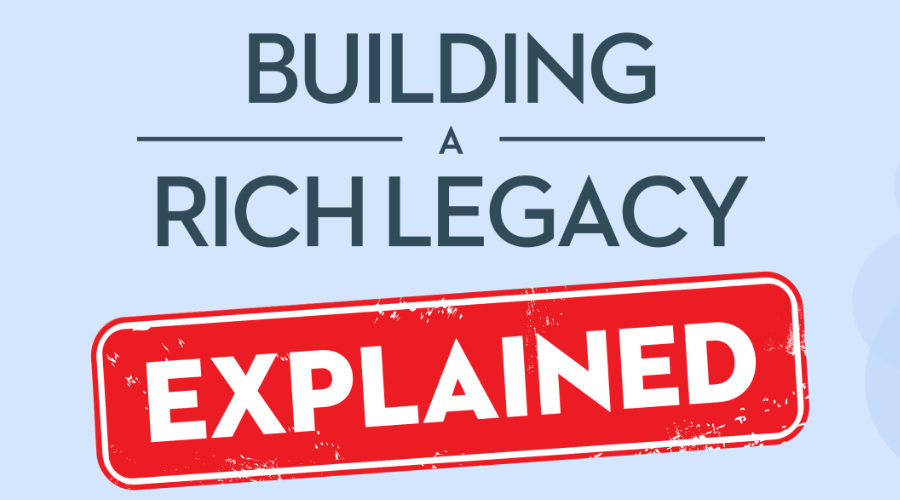Understanding loan maturity, repayment and inheritance tax in Canada
As Canadian homeowners, you may be familiar with the many advantages of a reverse mortgage. From affording expensive healthcare, to paying off high-interest debts (like credit cards or loans), or setting aside funds for home improvements or an emergency, a reverse mortgage can be a financial lifesaver in your retirement years.
While the equity in your home may be an excellent financial solution for you, it is important to understand the impact of a reverse mortgage inheritance on your spouse, children, or other Canadian heirs.
Demystifying reverse mortgage inheritance for Canadian heirs
In general, as long as home prices continue to rise, as time passes you build equity in your property. As a homeowner, you can access this equity in the form of loans, such as a home equity line of credit (HELOC), second mortgage or re-financing, and a reverse mortgage.
The type of home equity loan that best suits you could be a factor of:
- Your age and health
- Credit history
- Current earning capacity
- Nature of the monetary requirement (short term/long term)
- Amount of existing mortgage on the property
- Eligibility criteria for each type of loan
Understanding reverse mortgages in Canada
For a Canadian homeowner who is 55 or older, a reverse mortgage may be an excellent way to improve financial liquidity, reduce financial stress, as well as secure a future inheritance for your spouse or children. Here are some of the highlights of a reverse mortgage:
- Loan amount is dispensable in different ways, depending on your desire or need – lump sum, or some money upfront and the balance in instalments
- No monthly repayments required
- Borrowed amount is non-taxable
- No impact on your Old Age Security (OAS) or Guaranteed Income Supplement (GIS) benefits, or income from Registered Retirement Savings Plan (RRSPs).
- You maintain ownership of the property
The basics of reverse mortgage inheritance
A reverse mortgage matures when the homeowner decides to sell their home. This may happen due to the death of one or both homeowners or relocation to a new residence. However, a surviving spouse who is a co-borrower on the reverse mortgage, can continue to live in the home without any change to the terms of the loan.
Essentially, a reverse mortgage inheritance kicks in only after the death of the last borrower. At this stage, the loan provider will set a specific time for settlement of the loan amount, including the accumulated interest. This is when the reverse mortgage heirs’ responsibilities begin.
Depending on the equity left in the property at the time of loan maturity, the adult children or non-spousal heirs have the option to:
- Sell the property to repay the loan. Any leftover equity after paying off the loan can be retained by the heirs. Although rare, it is possible that the home sale value falls short of the loan repayable amount. In such cases, because of the negative equity guarantee, HomeEquity Bank guarantees[1] that the amount the client will have to pay on their due date will not exceed the fair market value of their home. In such cases, as long as the client meets their mortgage obligations, HomeEquity Bank covers the difference between the sale price and the loan amount. Repay the loan and retain the property.
- Sign a foreclosure deed, turn over the keys to the lender, and choose not to be part of any further dealings related to the property.
One of the main aspects that borrowers should consider is whether they are leaving behind any problems for their heirs:
-
- High interest rates: The interest rates on reverse mortgages are higher than some other lending options such as a HELOC, or traditional mortgages. For example, you may be able to get a conventional 5-year mortgage from as low as approximately these posted rates, whereas, the current reverse mortgage rates can be seen here.
- Ballooning mortgage: Since the interest has a compounding effect, your mortgage could quickly balloon. The upside is that the value of your home will likely rise as well over the 10-year period which can help cover this amount.
Find out how your reverse mortgage would affect your home equity.
The good news is that a reverse mortgage is a non-recourse loan. Which means, if the loan amount exceeds the value of the home, your heirs are not liable to make the excess payment, and the provider cannot claim repayment through their other assets[1]. That being said, it is always a good idea to talk to your children or inform your heirs when you are borrowing a reverse mortgage loan. Make them aware of their responsibilities and options for settling your debt when the time comes.
Pros and cons of reverse mortgage inheritance in Canada
While a reverse mortgage by itself has many advantages and disadvantages for its borrowers, here are some of the pros and cons of reverse mortgage inheritance for Canadian heirs.
| Pros | Cons |
|---|---|
| A reverse mortgage allows the borrower to retain ownership of their home, as long as they take care of the property taxes, maintenance and insurance. | You will have to bear the appraisal costs, legal costs and other expenses associated with selling the property. |
| If the reverse mortgage amount went into financing the down payment of a child or grandchild’s home, they are already enjoying the benefits of an early inheritance from you. | The origination fees, mortgage insurance and high interest rates may eat into some part of the home equity. In the rare event that the property market stagnates or slumps, the home value could be potentially lower than the mortgage amount. |
| If you have no interest in selling or owning the inherited property, you have the option to simply sign a deed in lieu of foreclosure and turn over the key to the lender. | If you sell the property to repay the loan, any capital gains after settling the mortgage will be taxable. |
| There are several refinance options available if you need help in settling the loan and owning the property. | |
| Since there is no inheritance tax in Canada, if you settle the loan with your own funds and take ownership of the property, you will not be paying any taxes when the property transfers to your name. |
Is inheritance taxable in Canada?
Do you pay inheritance tax in Canada? The answer is NO, there is no real death or inheritance tax in Canada. However, if you have inherited a real estate property, chances are that certain taxes will be applicable at the time of sale of the property.
As per the Canada Revenue Agency, when you sell real estate at a profit, 50% of the value of your capital gains are taxable. Capital gains taxes are applicable in most scenarios, even if you are selling an inherited reverse mortgage property. Simply put, your taxable capital gains in such a situation will be:
50% of (Sale value of the property – repayment of reverse mortgage – closing costs associated with sale of property – FMV at the time of purchase)
- For example: Let’s say you inherited a reverse mortgage property with FMV assessment of $500,000 and the loan amount, including accumulated interest is $125,000. If you sell the property at $700,000 and incur $10,000 in legal fees, property assessment costs and other closing charges, your capitals gains will be $700,000 – $500,000 – $125,000 – $10,000 = $65,000. 50% of this amount, i.e. $32,500 will be taxable at the applicable rates, based on your income and earnings from other sources.
As a first step, when you inherit a property with a reverse mortgage on it, you must try to get access to all the older records and order an appraisal to assess its Fair Market Value (FMV). This information will be useful in deciding how you wish to pay off the reverse mortgage.
- If you already own a property, the inherited property will be deemed as a secondary residence and you will have to pay 50% of the capital gains that you make on sale of this property, after the reverse mortgage repayment.
- If you are living in the inherited property for several years, the property may qualify as your primary residence. While the inheritance per se will not be taxable, if and when you sell the property, you are liable for taxation for 50% of the capital gains.
- If you decide to use your own funds and assets to settle the reverse mortgage and buy out the property, you will not be paying any taxes at that time. However, if you sell this property subsequently at a profit, the regular capital gains taxes will apply.
Many Canadian heirs already have their own home or have no interest in buying out or retaining an inherited property. However, whether you choose to sell now, or sell later, capital gains taxes will be applicable at the time of sale of the inherited property and applicable tax rates may differ for each case.
Reverse mortgage heirs have options: Know when to sell, retain or walk away
As a reverse mortgage heir, your responsibility is to decide whether to sell the property and pay off the dues, retain the home for sentimental reasons, or gain ownership and consider a sale in the future. Typically, on loan maturity, you will get a ‘due and payable’ notice from the lender, with a 30-day time period to plan your next course of action. Most lenders allow between 3 to 12 months for the reverse mortgage repayment, and up to 6 months to determine your financing options. (These terms and conditions may vary).
- When there is no potential equity left in the property, you may want to avoid the hassle of trying to sell, and simply sign the deed in lieu of foreclosure.
- If the home value is substantially higher than the repayable loan, you can sell the home, pay off the loan, and use the remaining proceeds to invest in a home of your own, or manage your other financial needs.
- When you don’t own another property or want to retain the family home for its sentimental value, you can take ownership by paying the full loan amount, accrued interest and other associated fees. At such times, if you cannot arrange your own funds to repay the loan, you could look at refinancing options, or seek a mortgage against the inherited property.
From complementing post-retirement finances, to supporting travel and home improvement budgets, the versatile reverse mortgage can help your parents in multiple ventures during their lifetime. Moreover, in a healthy property market, the value of the home will continue to rise, along with the equity in the home. As a Canadian heir, do not be apprehensive about a reverse mortgage inheritance; it may have more benefits than you think.
If you have inherited a reverse mortgage, you may have several questions related to paying off your parents’ mortgage, your responsibilities as an heir, and regulation about inheritance tax in Canada. For more information about the CHIP Reverse Mortgage® call 1-866-758-2447, and one of our professional experts will help answer your questions.
[1] The guarantee excludes administrative expenses and interest that has accumulated after the due date.
































